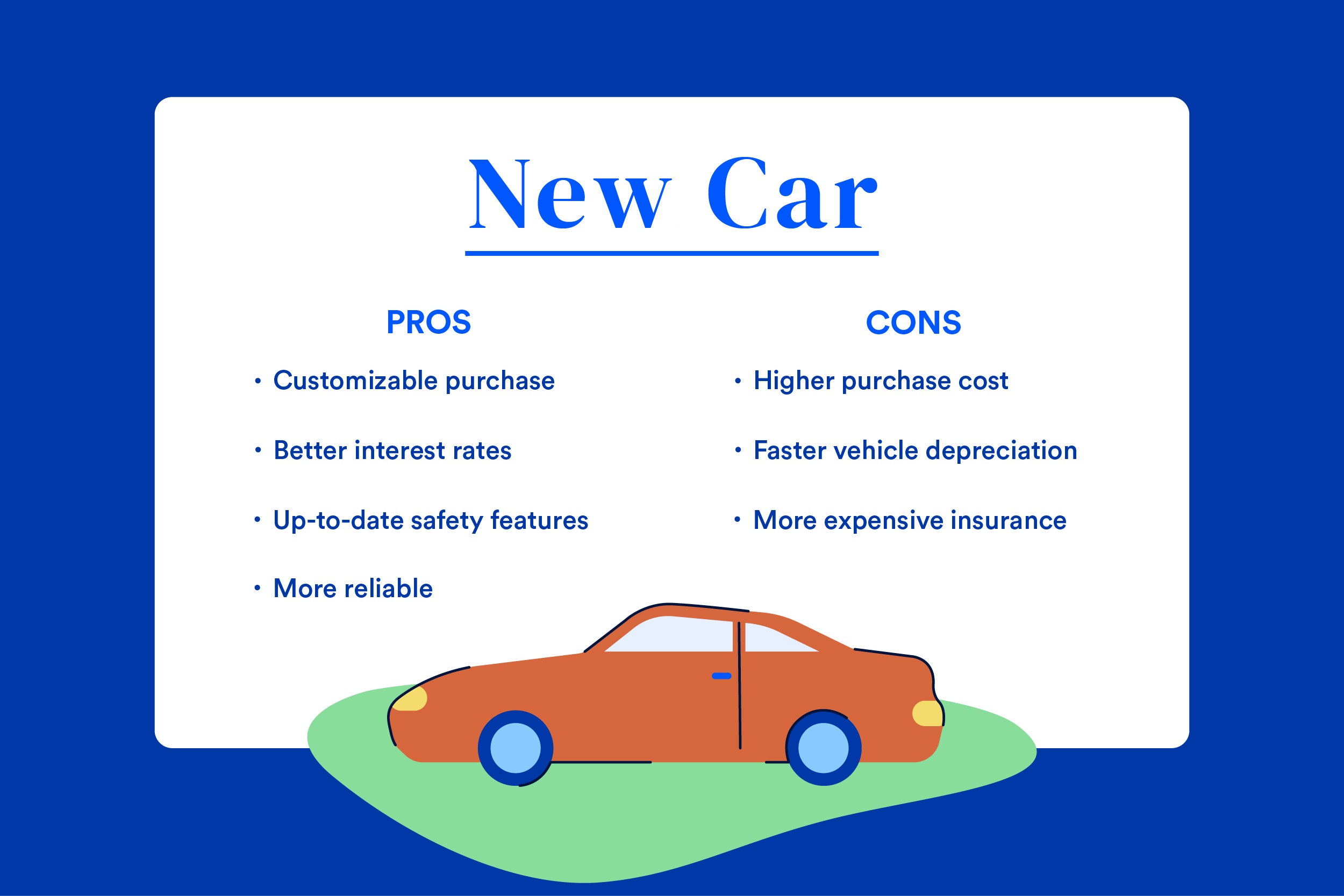How to Avoid Paying Sales Tax on a Used Car
To avoid paying sales tax on a used car, consider purchasing in a state with no sales tax or claim an exemption. Seek out states like Oregon, Alaska, Delaware, Montana, or New Hampshire for tax-free vehicle purchases.
Navigating the often complex landscape of car sales and taxes can be challenging, especially when looking to purchase a used car without the extra burden of sales tax. Understanding the specifics of your state’s tax laws is essential, as certain regions offer more favorable conditions for car buyers seeking to minimize additional costs.
Transacting in a state where the law exempts vehicle sales from tax could result in significant savings. Beyond geographic considerations, exemptions might apply under specific circumstances such as vehicle transfers between family members or gifts, although these rules vary significantly by state. It’s not just about finding the right car; savvy buyers focus on the total cost, which includes the potential sales tax. Thorough research and strategic planning can lead to a smooth acquisition with a lighter financial load.
/images/2022/02/08/woman_in_car.jpg)
Credit: financebuzz.com
Assessing State Sales Tax Regulations
Assessing State Sales Tax Regulations is crucial when planning to purchase a used car. Each state has its own set of rules regarding sales tax. Understand these regulations to potentially save on your next vehicle purchase. The goal is to navigate these laws effectively to avoid unnecessary costs.
Varied State Laws On Used Car Sales Tax
Sales tax rates can drastically differ from state to state. Some states may tax the full purchase price of a used vehicle, while others base it on the vehicle’s book value or selling price. A handful don’t charge any sales tax at all on used cars. Knowledge of your specific state’s laws is the foundation for potential savings. An examination of state guidelines will reveal if your upcoming car purchase is subject to these taxes.
Key Exemptions And Exceptions To Know
It’s important to familiarize yourself with exemptions and exceptions. Some states provide tax relief measures for family transfers, gifts, and vehicles coming from out of state. Others might offer breaks for military members or specific use cases like farm equipment. The following are common scenarios where exemptions might apply:
- Vehicle Gift: Transfer between certain family members may be tax-exempt.
- Out-of-State Purchase: Taxes paid to another state might be credited.
- Trade-Ins: The value of your trade-in may lower the taxable amount.
- Military Service: Active duty members could be exempt in some states.
To pinpoint these opportunities, check the revenue department’s website of your state or consult a local tax expert. They can offer guidance customized to your situation.

Credit: finance.yahoo.com
Private Sales Vs. Dealership Purchases
Purchasing a used vehicle comes with a crucial choice: private sale or dealership? Your decision not only impacts the car you drive but also your wallet, particularly in terms of sales tax. Explore how each option bears on tax savings to make a well-informed choice.
Navigating Private Sales For Tax Benefits
In many states, buying a used car in a private sale can lead to tax savings. Why? Sometimes, sales tax does not apply to private transactions. This can mean keeping dollars in your pocket.
- Research your state’s tax laws: Some states offer exemptions or lower tax rates for private sales.
- Document the sale price: Record the actual transaction value. A lower sale price can mean less tax.
- Be honest: Never underreport the price to save on tax. This is illegal and can lead to penalties.
Dealership Tactics To Minimize Tax Liability
Dealers often have strategies to help buyers with tax savings. Since every penny counts, understanding these tactics is key.
- Trade-ins: Dealers can reduce your purchase price by the value of your trade-in. This lowers the taxable amount.
- Incentives and rebates: Take advantage of dealer incentives. These can directly reduce your taxable purchase price.
- Promotional events: Keep an eye out for sales events. Dealers may offer tax credits or paid tax promotions.
Stay informed and consider the sales tax implications when weighing a private sale against a dealership purchase. Knowledge is power and, in this case, possible savings.
Gifting And Inheritance Considerations
Think about getting a used car without the tax? Gifts and inherited cars might be the answer. Let’s look at how these options could help save on taxes.
Understanding Gift Transfers
Gifting a car to someone can be a smart move. There’s usually no sales tax for the receiver. Yet, each state has different rules. Below, learn the steps to take:
- Check the state’s Department of Motor Vehicles (DMV) website.
- Find out if they need a gift letter or form.
- Fill out the gift form with the car’s details.
- Submit the form with the title and a bill of sale, if required.
It’s key to know who can receive such gifts. Immediate family often qualifies. Each state defines “immediate family” differently.
Inheriting A Vehicle And Tax Implications
Inheriting a car comes with its own tax rules. The process can seem complex. Here’s a simplified guide:
- Get the will or estate paperwork.
- Contact your local DMV for the steps to transfer ownership.
- Ask about any tax exemptions for inherited vehicles.
Tax exemption rules vary by state. Some states waive sales tax on inherited cars. Remember, other taxes like inheritance tax may apply.
Keep these tips handy to make gifting or inheriting a used car a smooth ride. Stay informed about your state’s tax laws to save on costs.

Credit: www.phillong.com
Documentation And Record-keeping
Documentation and record-keeping are pillars of successfully avoiding sales tax on a used car purchase. Right documents can mean tax exemption. You need to know which documents to keep. Records protect you later. They show tax authorities about your tax exemption eligibility. Let’s explore the essentials!
Vital Documents For Tax Exemption Eligibility
Gathering the correct paperwork is key. Without it, claiming an exemption is tough. You need specific documents. They vary by state. Some common ones include:
- Bill of Sale: This shows purchase details.
- Exemption Certificates: States have different forms.
- Title Transfer: Proves you’re the new owner.
- Affidavits: Sometimes required for special exemptions.
Check with local DMV. They’ll list what you need. Get all papers before the sale.
Maintaining Records For Future Verification
Keep records safe. Tax authorities might ask for them. Store them for at least a few years. Digital copies help. Here’s a guide for record-keeping:
- Save All Documents: Get them the same day as the sale.
- Organize: Make folders for each category. Use labels.
- Backup: Create digital backups. Use cloud storage for safety.
Detail is important. Dates, amounts, and detailed descriptions are key. They help prove your case. Good records make tax time easy!
Cross-state Purchase Strategies
Savvy car buyers can save on sales tax with cross-state purchase strategies. Learn the loopholes and legal ways to keep costs down.
Buying From A State With Lower Sales Tax
Finding a state with a lower sales tax rate can lead to significant savings. Here’s a plan:
- Research states with the lowest sales tax rates for vehicles.
- Cross-reference these rates with the type of used car desired.
- Contact dealerships or private sellers in the targeted states.
- Calculate potential savings, including travel costs.
- Check interstate sale regulations, and proceed with purchase.
Remember: Some states exempt vehicle purchases from sales tax, while others have minimal rates. Conduct thorough research to avoid surprise fees.
Registering In A Tax-friendly State
Consider registering the car in a state with beneficial tax laws. Follow these steps:
- Determine which states offer tax advantages for car registration.
- Understand residency requirements for vehicle registration.
- Obtain a legitimate address in the chosen state, if necessary.
- Complete registration paperwork according to state guidelines.
Important: Some states require proof of residency for registration. Others might allow non-residents to register vehicles under certain conditions. Make sure to abide by the laws to avoid legal issues.
| Strategy | Benefits | Considerations |
|---|---|---|
| Lower Sales Tax State Purchase | Potential for reduced upfront costs | Travel and logistics |
| Registering in a Tax-Friendly State | Possibility of lower ongoing fees | Residency rules and regulations |
Note: Tactics must comply with state and federal laws. Misrepresenting information for tax evasion is illegal.
Legal And Ethical Considerations
Thinking about skipping sales tax on a used car? You must consider legal and ethical issues. It’s about staying on the right side of the law. Avoiding tax illegally can lead to trouble.
Avoiding Fraudulent Practices
Stay clear of scams when you buy a used car. Some sellers may offer illegal ways to skip tax. Don’t fall for it. Use legitimate methods only. This will keep you out of legal hot water.
The Importance Of Compliance With Tax Laws
- Tax evasion is a major offense.
- Each state has laws about car sales tax. Know them.
- Pay what you legally owe. Else, you could face penalties.
- Some legal loopholes might exist. Use them wisely and lawfully.
Remember, dodging tax illegally is never worth the risk. Protect yourself by following the rules. Good citizens pay their fair share.
Frequently Asked Questions On How To Avoid Paying Sales Tax On A Used Car
Is Avoiding Sales Tax On Used Cars Legal?
Yes, in some circumstances, it’s legal to avoid sales tax on a used car. It typically involves specific situations like a transfer between family members or a gift. Always check your state’s regulations to ensure compliance with tax laws.
Can Trade-ins Reduce Used Car Sales Tax?
Trading in your old vehicle when purchasing a used car can decrease the amount of sales tax you owe. The trade-in amount is usually deducted from the sales price of the used car, which reduces the taxable base.
What States Have No Sales Tax On Used Cars?
States like Oregon, Alaska, New Hampshire, Montana, and Delaware don’t levy sales tax on used cars. However, registration or other fees might apply, so confirm with local DMV for the total costs involved.
How Does Sales Tax Exemption Work For Used Cars?
Sales tax exemptions for used cars can occur due to several reasons, including vehicle gifts, transfers between immediate family, or the use of the car for certain non-profit organizations. Check your local tax laws for eligibility requirements.
Conclusion
Navigating sales tax on a second-hand car can yield significant savings. By understanding local laws and considering private sales, gifts, or out-of-state purchases, buyers have strategies at their disposal. Remember, thorough research and due diligence are your best allies in economizing.
Smart planning now leads to rewarding outcomes at registration. Drive smart, save smarter!





